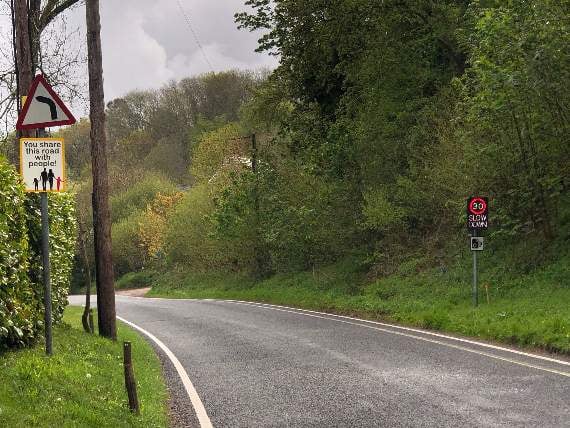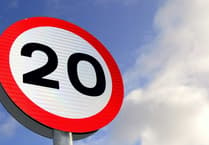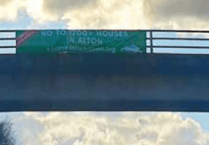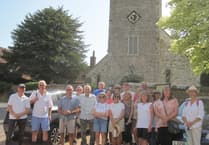A PARISH councillor has said more must be done to tackle speeding in Beech – but spoke of challenges in enforcing the limits throughout the village.
Councillor Daniel Gordon said reducing speeding throughout the village was a “key priority” for the parish council, and was accounted for in the village’s neighbourhood plan (NP).
Research for the NP found that of residents surveyed, 91 per cent considered it “unsafe to walk along the main village road”, which has no footpath.
A further 48 per cent favoured the introduction of 20mph in the village centre.
Cllr Gordon said: “For several years now the speeding has been the key priority for the village and the parish council.
“People come from Four Marks, which has seen a lot of new houses and Medstead too.
“The problem is the road through Beech is very curvy, steep and has lots of trees around it and no verge where people can safely walk.”
Statistics recorded by the parish council’s speed reminder sign (pictured) – which is moved periodically throughout the town – found that on average, around 2,000 cars a day travel through Beech.
Of those recorded, around 55 per cent break the 30mph speed limit. And of those speeding, around “seven to ten per cent exceed 40mph”.
Cllr Gordon added: “Just recently, there was someone doing 70mph in the middle of the day.
“There have been various near misses now, with children who walk, people who walk their dogs were nearly hit.
“It is highly dangerous.”
Cllr Gordon also confirmed the parish council had recently worked alongside a land owner to build a public footpath through parts of private land, but that only covered “a stretch of the overall road”.
He added: “We’re on this campaign to make the roads safer.
“We can’t get any measures like cameras installed yet because no one has been killed yet – but sooner or later someone will be killed.”
Cllr Gordon said the parish council was trying to promote an active dialogue with the police and Hampshire Highways to tackle speeding.
A spokesperson for Hampshire Constabulary encouraged anyone to report issues in their community via 101, or 999 in an emergency.
The spokesman added: “Every report enables us to build a picture of what is happening in our communities, and to better direct our resources to keep people safe.”




